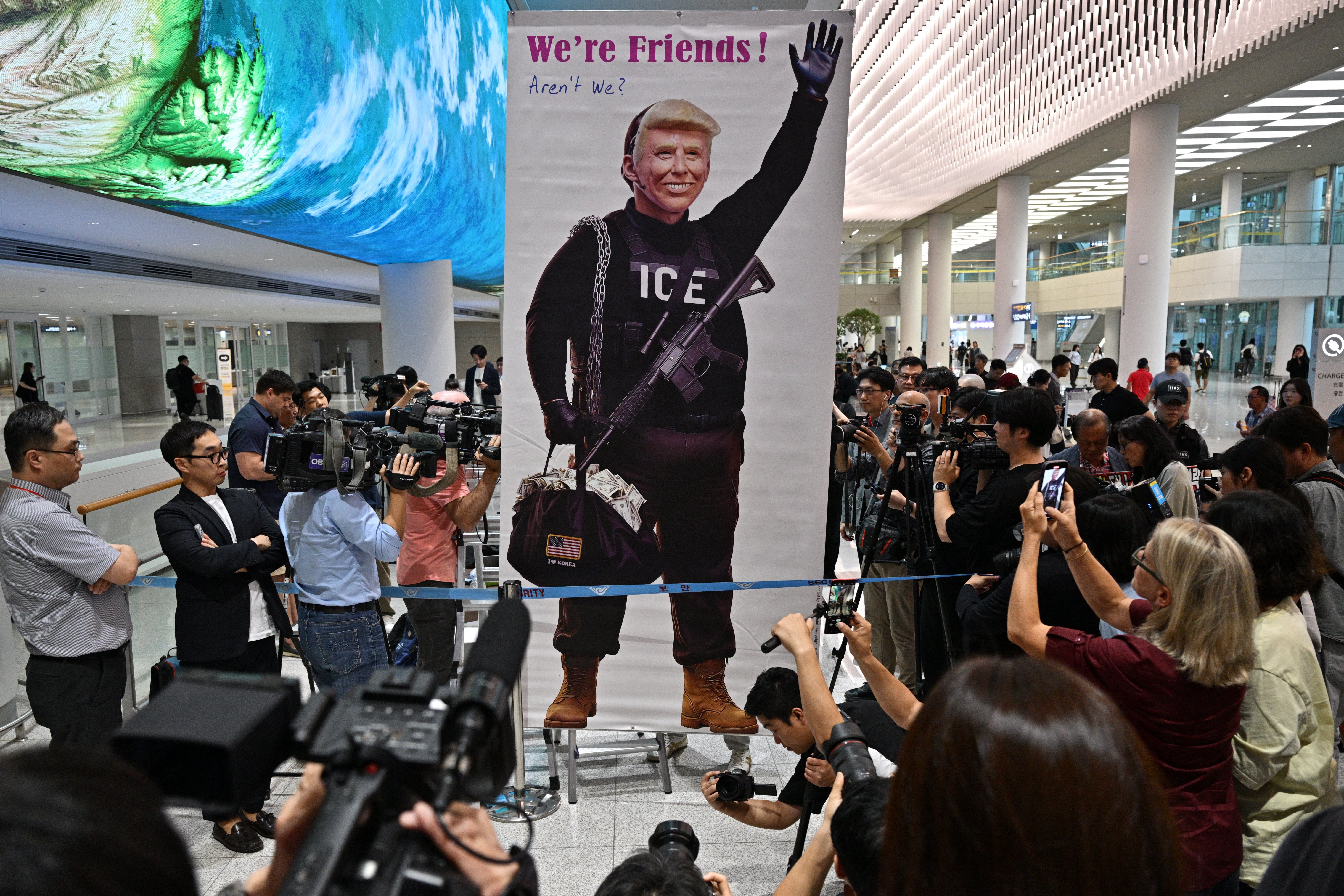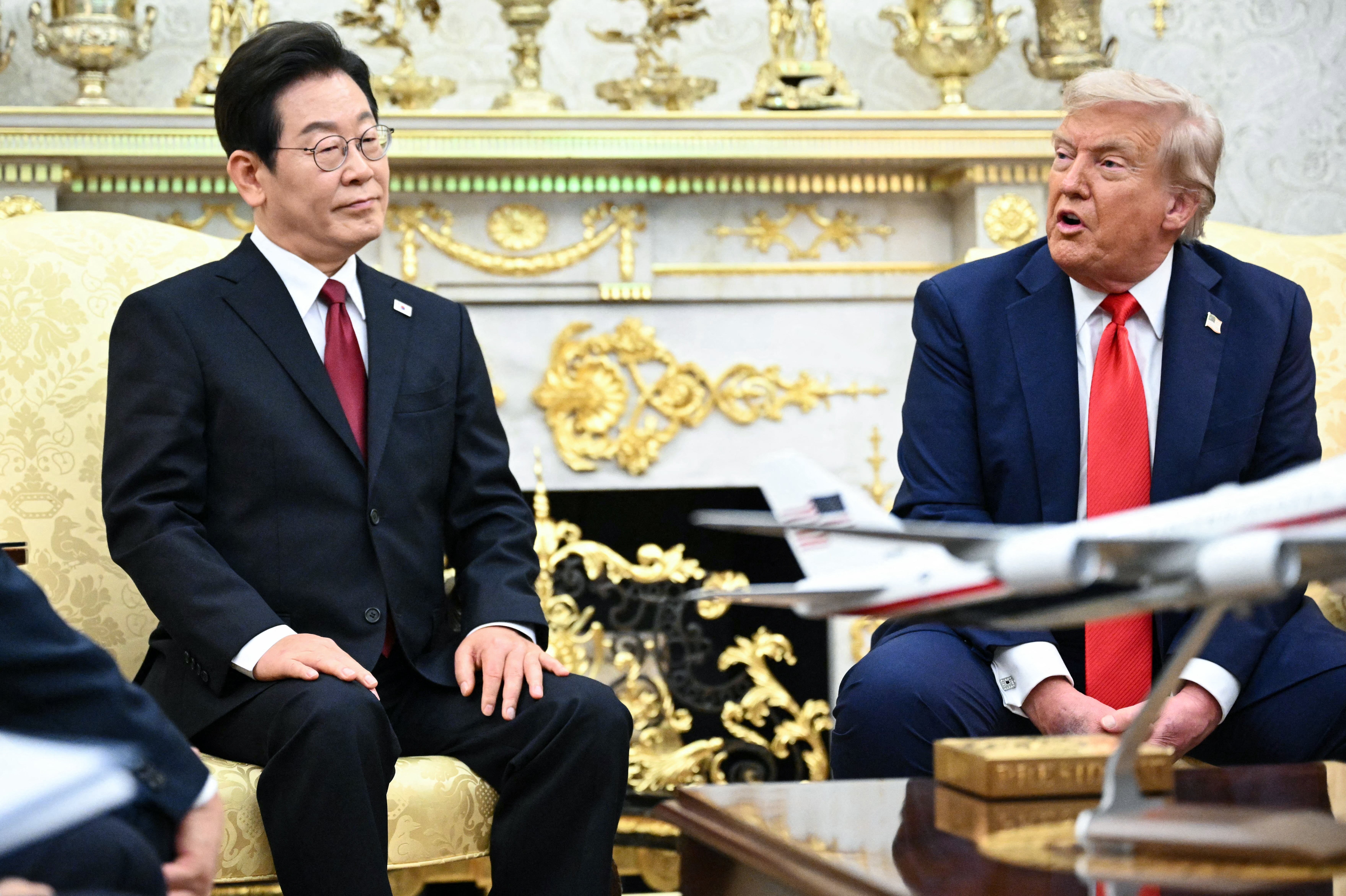An immigration raid at a sprawling Hyundai-LG plant in Georgia earlier this month could have major ramifications for the Trump administration’s ability to attract foreign investment in the United States, a major plank of the White House economic agenda.
The September 4 operation led to nearly 500 initial arrests, including hundreds of workers from South Korea, a major U.S. ally from which multiple marquee firms had invested billions into the vehicle-related battery facility, which is still partially under construction.
Hundreds of Korean workers caught in the sting, the largest of its kind in Department of Homeland Security history, returned to their home country Friday.
Nonetheless, efforts appear ongoing both domestically and overseas to contain the fallout from the operation, which immigration attorneys said netted arrests of both legal and illegal foreign workers.
Hyundai, meanwhile, has said none of those arrested were directly employed by the company and plans to ensure all suppliers and subcontractors working at the plant are complying of their legal obligations.

On Truth Social, Donald Trump offered a rare endorsement of immigration and sought to assure foreign companies they can still send workers to the United States to supervise investments and train Americans on new ventures.
“I don’t want to frighten off or disincentivize Investment into America by outside Countries or Companies,” the president wrote Sunday.
“We welcome them, we welcome their employees, and we are willing to proudly say we will learn from them, and do even better than them at their own ‘game,’ sometime into the not too distant future!” he added.
Following the raid, which was originally launched to seek the arrests of four Latino workers at the plant, according to a warrant seen by The Independent, the president reportedly floated the possibility the detained Korean workers could temporarily stay in the country and train American workers.
In Seoul, meanwhile, South Korean diplomats said Deputy Secretary of State Christopher Landau met with officials and expressed regrets over the arrests.
“Deputy Secretary Landau expressed deep regret over the incident and proposed using it as a turning point to improve the system and strengthen the South Korea-U.S. relationship,” the South Korean foreign ministry said in a statement, adding that officials pressed the Trump administration to create a new visa category to avoid such incidents.

“[T]he United States welcomes and encourages foreign investment in our country and therefore logically welcomes and encourages the personnel necessary to get those investments up and running,” Landau wrote on X on Sunday. “These are the kind of visitors we want, who are CREATING American jobs and prosperity right here at home. Korean companies are poised to make MASSIVE new investments in our country (in shipbuilding among other industries), and—as I emphasized to our Korean friends—we in the @StateDept will ensure that they have the necessary and proper visas to comply with our laws.”
The Independent has requested contact from the White House.
The sight of immigration agents chasing Koreans through a U.S. factory has cut against attempts to foster further U.S.-South Korean economic ties as part of a July deal for the Trump administration to lower the president’s tariff rates on the country in exchange for $350 billion in Korean investments in the U.S.
Within South Korea, the operation proved especially alarming.
South Korean President Lee Jae Myung warned Thursday that some companies fear “establishing a local factory in the United States will either come with severe disadvantages or become very difficult for our companies” unless the United States can promptly issue reliably enforced visas to foreign technicians.
“We are in an age of new normal in dealing with the United States,” South Korean presidential chief of staff Kang Hoon Sik told reporters Friday at the airport in Incheon when the detained workers were arriving.
“The standard changes every time and constantly there has to be deal-making, not only on tariffs, but it’ll also be the case with security issues,” he said.
Chosun Ilbo, South Korea’s conservative daily newspaper, which traditionally has backed a strong alliance with the United States, warned in an editorial that the present context “raises fundamental questions about what ‘alliance’ really means” with its ally.


